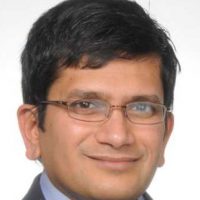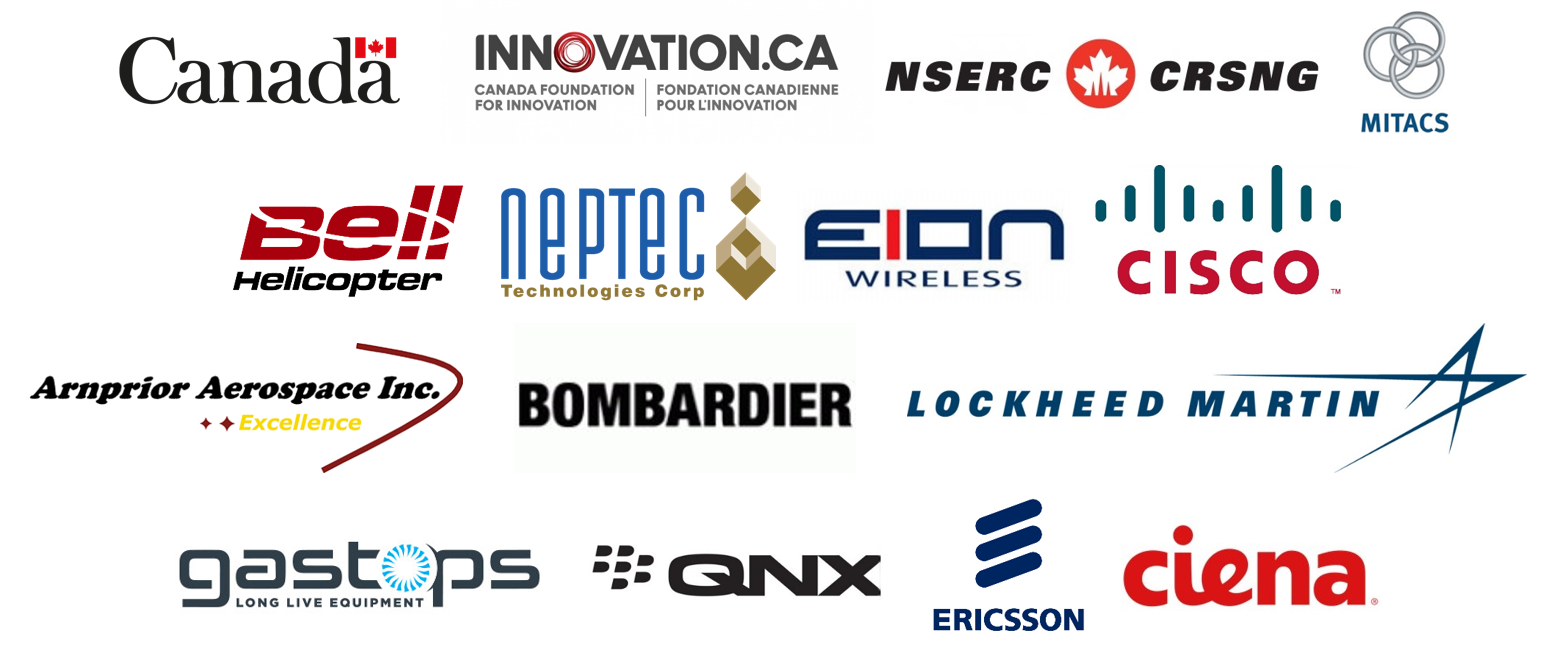Carleton University is actively involved in autonomous vehicle technology, with over 100 researchers from four faculties and 13 university departments, schools and institutes engaged in a broad spectrum of research, with applications as far-ranging as cognitive science, sensor networks, robotics, machine learning and artificial intelligence, unmanned vehicles, accurate algorithm predications, computer security and wireless-based systems. Our researchers are working to make the transportation of the future safer, more sustainable, more secure, and more efficient.

A few of our distinguished faculty:
 Halim Yanikomeroglu’s research is focused on customization and adaptation of state-of-the-art 5G wireless networks, multihop relaying and cooperative communications for connected vehicles.
Halim Yanikomeroglu’s research is focused on customization and adaptation of state-of-the-art 5G wireless networks, multihop relaying and cooperative communications for connected vehicles.
 Yuhong Guo is the Canada Research Chair in Machine Learning. She co-chaired the Siam International Conference on Data Mining (SDM) and the Conference on Neural Information Processing Systems (NIPS), was a committee member for many others, and has done journal review for half a dozen international journals on machine learning, computer vision, pattern analysis, computational biology and bioinformatics, and neural networks. Her areas of interest include: machine learning, artificial intelligence, natural language processing, computer vision, bioinformatics, and data analysis.
Yuhong Guo is the Canada Research Chair in Machine Learning. She co-chaired the Siam International Conference on Data Mining (SDM) and the Conference on Neural Information Processing Systems (NIPS), was a committee member for many others, and has done journal review for half a dozen international journals on machine learning, computer vision, pattern analysis, computational biology and bioinformatics, and neural networks. Her areas of interest include: machine learning, artificial intelligence, natural language processing, computer vision, bioinformatics, and data analysis.
 Mohamed Atia is a member of the Institute of Navigation (ION) and the founder of the Embedded and Multi-Sensor Systems (EMSLab) here at Carleton. Automotive navigation is only one of the EMSLab’s research areas; other areas of expertise include Unmanned Aerial Vehicles (UAVs), People/Asset Tracking, and Indoor Positioning/Navigation
Mohamed Atia is a member of the Institute of Navigation (ION) and the founder of the Embedded and Multi-Sensor Systems (EMSLab) here at Carleton. Automotive navigation is only one of the EMSLab’s research areas; other areas of expertise include Unmanned Aerial Vehicles (UAVs), People/Asset Tracking, and Indoor Positioning/Navigation
 Chris Joslin’s research has been in the area of video and audio compression, and adaptation methods for network systems in order to reduce network load for collaboration and permit collaborative virtual environments to be expanded by users. His core research topics are 3D computer graphics and animation, biomedical engineering, and signal processing and compression – and these core elements remain integral to his more recent research developing automotive displays and user interfaces for automobiles that drastically reduce driver distraction.
Chris Joslin’s research has been in the area of video and audio compression, and adaptation methods for network systems in order to reduce network load for collaboration and permit collaborative virtual environments to be expanded by users. His core research topics are 3D computer graphics and animation, biomedical engineering, and signal processing and compression – and these core elements remain integral to his more recent research developing automotive displays and user interfaces for automobiles that drastically reduce driver distraction.
 Rony Amaya’s research interests include: adaptive integrated active antennas and filters; active, switchable and tunable engineered surfaces; GaN/GaAs/Si based reconfigurable MMICs; System-On-Package (SOP) integration; miniaturized integrated sensors; high efficiency RF Wireless Power Transfer (WPT) and energy scavenging; capacitive and inductive contactless communications; high power integrated electronics; and galvanic isolation for high voltage electronic systems. The applications of his research in electronics include: intelligent, reconfigurable wireless systems with spectrum awareness and interference mitigation; 5G wireless systems; robust navigation and communication systems for UAVs; wireless long-range telemetry and power charging for next generation RFIDs and IoTs; high efficiency, high power electronics for aerospace and automotive applications; and more.
Rony Amaya’s research interests include: adaptive integrated active antennas and filters; active, switchable and tunable engineered surfaces; GaN/GaAs/Si based reconfigurable MMICs; System-On-Package (SOP) integration; miniaturized integrated sensors; high efficiency RF Wireless Power Transfer (WPT) and energy scavenging; capacitive and inductive contactless communications; high power integrated electronics; and galvanic isolation for high voltage electronic systems. The applications of his research in electronics include: intelligent, reconfigurable wireless systems with spectrum awareness and interference mitigation; 5G wireless systems; robust navigation and communication systems for UAVs; wireless long-range telemetry and power charging for next generation RFIDs and IoTs; high efficiency, high power electronics for aerospace and automotive applications; and more.
 Sreeraman Rajan is the Canada Research Chair in Sensor Systems and the Chair of IEEE Canada Area East (previously Chair of the Ottawa Section.) He came to Carleton from Defense Research and Development Canada. His areas of interest include: sensors and sensor systems (biomedical, defense and security applications); compressive sensing; signal processing (including biomedical, statistical and adaptive); machine learning; and pattern classification.
Sreeraman Rajan is the Canada Research Chair in Sensor Systems and the Chair of IEEE Canada Area East (previously Chair of the Ottawa Section.) He came to Carleton from Defense Research and Development Canada. His areas of interest include: sensors and sensor systems (biomedical, defense and security applications); compressive sensing; signal processing (including biomedical, statistical and adaptive); machine learning; and pattern classification.
A few of our cutting-edge facilities and research groups:
- UAV and MAV Lab
- Huawei-Telus Enterprise Cloud Systems Lab
- MITEL Networks and Analog Devices VoIP Lab
- Real-Time and Distributed Systems Lab
- Advanced Cognitive Engineering Lab
- Autonomous Space Robotics and Mechatronics Laboratory
- Carleton Laboratory for Laser-Induced Photonic Structures
- Computational Geometry Lab (CGLAB)
- Complex Adaptive Systems Group
- Carleton Computer Security Lab (CCSL)
- JY Wong Lab for Terrestrial and Extraterrestrial Mobility, Guidance and Control
Projects and Partnerships:
Carleton University has established strong ties to the federal and provincial governments, industry partners, and research institutions. Our researchers have collaborated with a number of corporate partners in the fields related to autonomous vehicle technology, including:

…and more.
